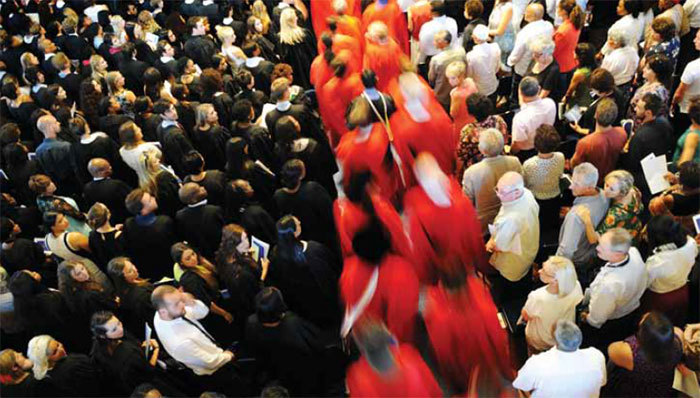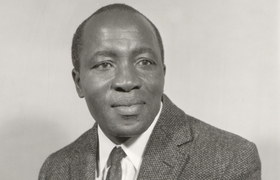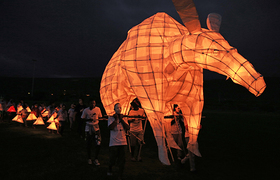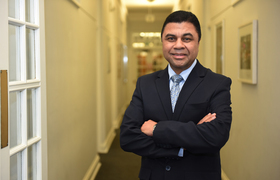Evolution and seasons
27 July 2015
The evolution of seasons on campus between one semester and the next is marked in red, as UCT celebrates the smaller (but by no means lesser) of its two annual graduations.
In June, the red splash of doctoral academic gowns is vivid in the first rows of graduands waiting to be capped in the Jameson Hall.
Postgraduate research is the lifeblood of UCT's academic enterprise, and this year the four June ceremonies marked the end of a rite of passage for 86 new PhD graduates.
We'll be featuring samples of this research in our online news and other media. First up online, look out for Dr Tarryn van Niekerk's study of intimate partner violence and how victims are portrayed in the media; a mirror of a nation's skewed values.
In particular, her thesis examines society's constructions of masculinity, as reflected in media coverage of these crimes: the victims are depicted as 'bad girls', deserving of violence at the hands of their male partners.
Linked, almost serendipitously, is Dr Buhle Zuma's op-ed on what it means to be human. His lens falls on a postapartheid society, where he sees equality and enfranchisement being linked to economic factors and consumerism rather than metaphysical or spiritual values.
In this edition we also look at the work of GroundUp, a corps of community reporters tackling pressing social issues such as gangsterism and service delivery. They're backed by UCT's Centre for Social Science Research (CSSR) and the Community Media Trust. As the founder and a former CSSR researcher, Nathan Geffen says their work features very few cute pictures of cats and little reportage on the Kardashians.
The themes of evolution and seasons underpin the visual map of the cityscape as seen from upper campus, which traces the histories of place: communities such as Langa, Pinelands, Gugulethu, Khayelitsha and Athlone.
And on history much further north, religious scholar Dr Andrea Brigaglia examines Boko Haram's rise in Nigeria, its shadowy leadership and its backers. In trying to understand the terrorist group, he says, researchers are left with more questions than answers.
Uncertainty is the birthplace of knowledge.
The Newsroom Team
 This work is licensed under a Creative Commons Attribution-NoDerivatives 4.0 International License.
This work is licensed under a Creative Commons Attribution-NoDerivatives 4.0 International License.
Please view the republishing articles page for more information.










